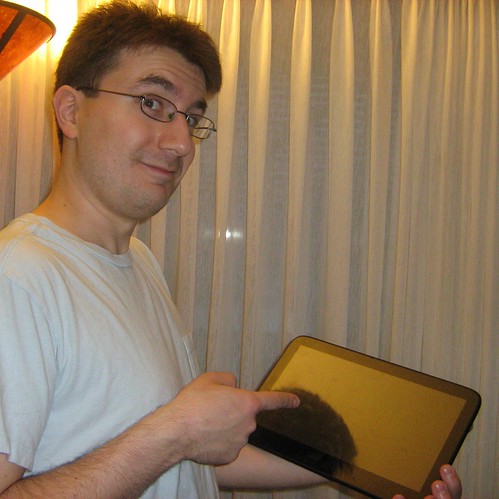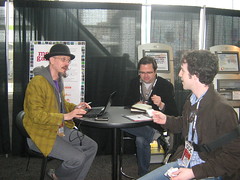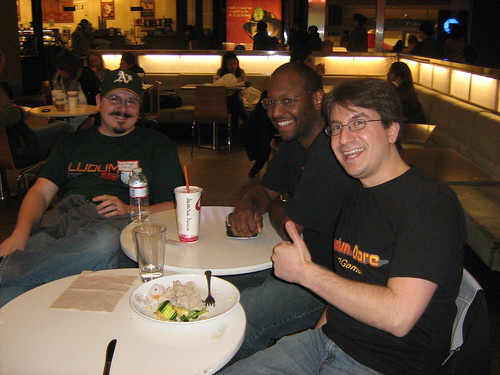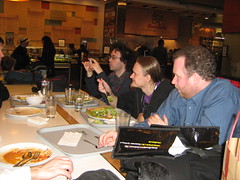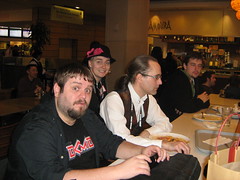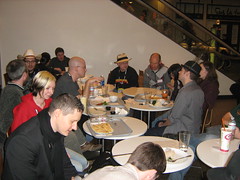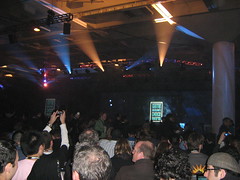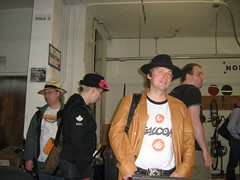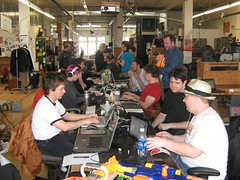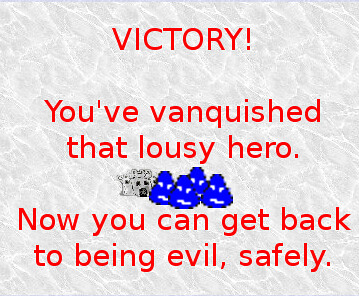A week before I fly to San Francisco for my first GDC, I visited my family back in Chicago for the weekend. My plan was to go back to Des Moines Sunday evening so I can spend the next week preparing for the conference.
It’s now Day 6 of that weekend due to a pulled back muscle, and I blame my niece.
More accurately, I blame myself for not taking care of my body better. I’ve been super focused on making progress on Stop That Hero! end game victory and defeat conditions, especially in the last few weeks. In terms of my health, though, I felt under the weather in the previous week, and sitting at my desk for many, many hours on end is punishing on your posture.
Driving for 7 hours to Chicago last Friday didn’t help.
Then I saw my niece, and while playing with her, I discovered that jumping up and down makes her giggle. If you have a niece, you know that her laugh is one of the best sounds in the world, and so you keep doing whatever it is that makes her laugh. So I kept jumping up and down for much longer than I’ve ever done in what is probably years.
And throughout the rest of that day, I went from feeling perfectly fine to feeling a light twinge in my back to being unable to move my arms, legs, and head easily.
I was in a lot of pain, and driving for another 7 hours was not going to happen until I could sit for longer than 5 minutes without feeling like I was being tortured.
The Difference Between Having a Job and Owning Your Business
Now, if I was still working at a Day Job, I’d most likely get paid time off, and here would be an excuse to actually take advantage of it! One of the benefits of a good job is that they pay you if you can’t work, bizarrely enough.
But since I’m an indie developer who isn’t finished creating his first game yet, let alone earning income from sales of said game, every day I’m unable to work equates to money lost. I’m burning through savings as it is, and the productivity hit from being sick or injured isn’t helpful.
When you’re sick, you feel miserable and unmotivated. Maybe you can do only half of a day’s work today? When you’re injured, it can either be no problem (I don’t need my ankle to type code), or it can be debilitating (if you’re in extreme pain when you lift your arm, you probably shouldn’t be mousing with it).
But either way, if you run your own business and are unable to be productive, it’s frustrating. It’s especially damaging if you don’t have an automatic selling system in place. Ideally, if I had games to sell, I could make money while I sleep, or while I’m on vacation, or even while I’m unable to work. Until then, it’s almost as if you are carrying the entire business on a tightrope, and you’re just trying to make it across to the other side before you fall. My savings are providing me with a safety net, but I’d rather the money go towards more productive uses.
While I haven’t been able to work on code this last week, I did take advantage of the downtime to catch up on an Internet business marketing audio course I’ve been meaning to finish. I brought my game development notebook with me, so I spent some time going through it and remembering how Stop That Hero! has progressed, as well as thinking about the future direction of the project.
In the end, I tried to make the most of my situation, so this last week wasn’t a total productivity loss, but it’s still frustrating that I couldn’t get back to work.
Taking Care of Your Indie Self
Days before I pulled my back muscle, I recall thinking, “Self, it’s been some time since you last did a good stretching session or even went for a walk. You should probably start getting your body moving again before you regret it.”
And I said, “Ok, Self, sure. I’ll get moving as soon as I finish working on the combat mechanics.”
There’s lots of excuses for not taking care of yourself. Gym memberships are too expensive to justify when you have no income. It’s too cold to go outside. Driving downtown to the excellent Des Moines skywalk system to walk indoors is too inconvenient. You woke up too late (again), blowing past your scheduled exercise time.
But in the end, they’re excuses, and eventually your body pays for your health debt.
If I was more strict about taking an hour every morning to do stretches and exercises, maybe my back muscles wouldn’t have been so shocked by all the sudden jumping and movement, and I wouldn’t have lost a week of productivity. Maybe if I didn’t care about feeling silly, I could have at least walked up and down the stairs within the building I live in.
And if nothing else, the mental clarity that exercise brings should be enough of an incentive if I insist on having workaholic tendencies.
Cliff Harris of Positech Games advocates archery as some fun physical exercise. David Michael, author of The Indie Game Development Survival Guide , lifts weights. A colleague of mine makes an effort to walk periodically throughout the week (and I should really take up his offer to join him once I recover).
, lifts weights. A colleague of mine makes an effort to walk periodically throughout the week (and I should really take up his offer to join him once I recover).
Even with daily exercise, it might not be enough. Noel Llopis writes about his standing desk experiment and the news that sitting for prolonged periods of time can be deadly. I’ve been wanting a standing desk myself, if only for the change in posture.
How do you take care of your physical health as an indie game developer? How much of a priority do you give to exercise in your life?


